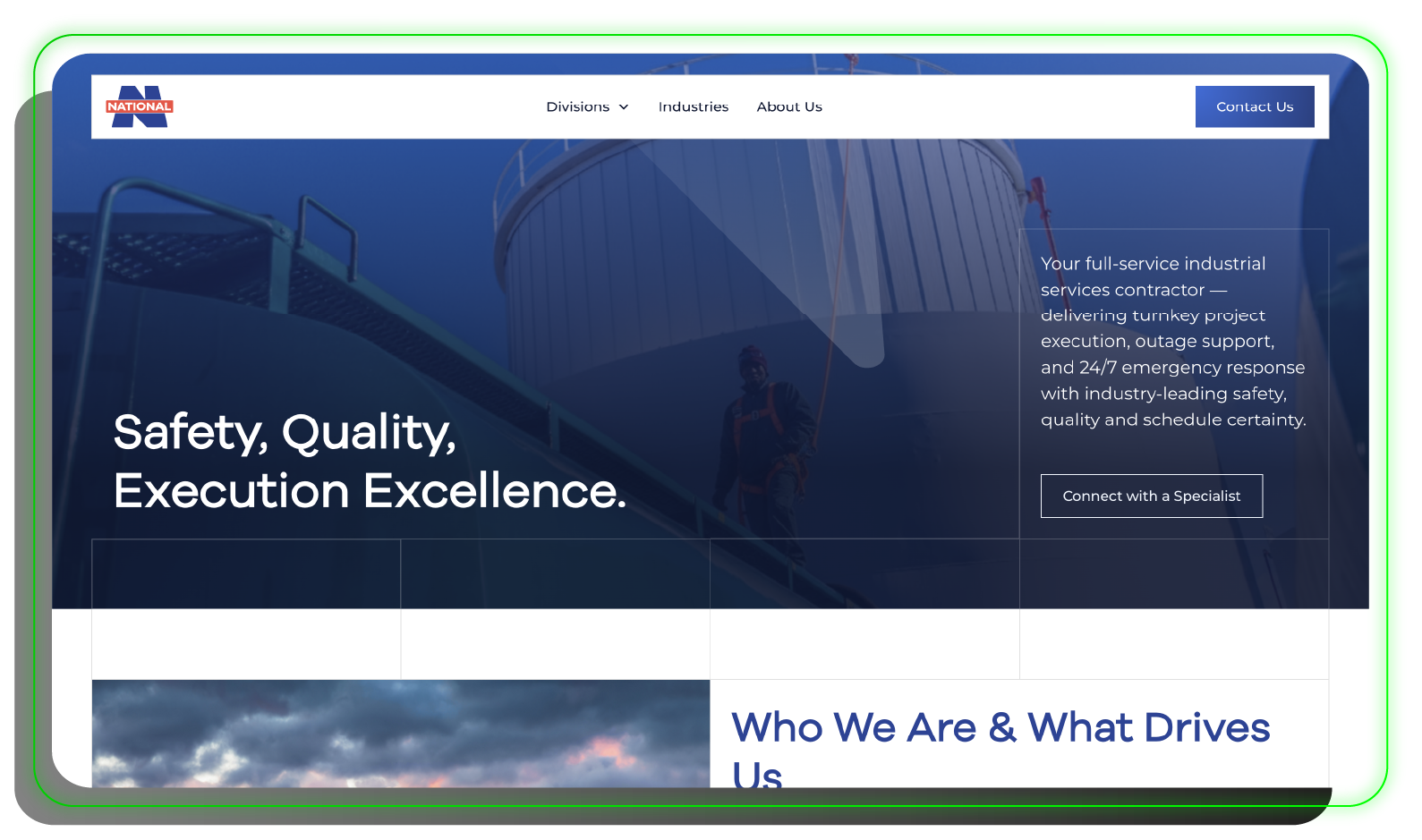Measure your marketing efforts with Conversion Tracking
Conversion tracking allows you to gain valuable insights into your customers' behavior and optimize your strategies for maximum success. In a few words, it helps you to understand exactly how users convert, so you can make the right decisions to optimize your funnel.
What is Conversion Tracking?
Conversion tracking is the process of monitoring and analyzing user actions on your website or other digital platforms to determine whether they complete a desired action, such as making a purchase, filling out a form, or subscribing to a newsletter. By tracking these conversions, you can evaluate the performance of your marketing campaigns and make data-driven decisions to improve your results.
Key Benefits of Conversion Tracking for B2B tech companies
- Insightful data: Conversion tracking provides you with valuable data on user behavior, allowing you to understand what drives conversions and identify areas for improvement.
- Optimization opportunities: By analyzing conversion data, you can optimize your marketing strategies, landing pages, and user experience to increase your conversion rates.
- ROI measurement: Conversion tracking enables you to measure the return on investment (ROI) of your marketing efforts, helping you allocate your resources effectively.
- Targeted marketing: With conversion tracking, you can segment your audience based on their conversion actions and create targeted marketing campaigns to engage and convert specific user groups.
Different ways to track conversions
There are several different ways to track conversions, each with its unique advantages and applications.
- Google Analytics: Google Analytics is a popular tool for tracking website conversions. It allows you to set up goals and track specific actions on your website, such as form submissions, purchases, and button clicks. Google Analytics provides valuable insights into user behavior and conversion paths.
- Pixel tracking: Platforms like Facebook, LinkedIn, and Twitter offer pixel tracking, which allows you to track user interactions and conversions that occur as a result of your ads on their platforms. By placing a pixel on your website, you can measure the effectiveness of your social media advertising campaigns.
- Call tracking: For businesses that rely on phone calls as a conversion metric, call tracking software can be used to assign unique phone numbers to different marketing channels. This enables you to track which channels are driving the most phone call conversions.
- UTM parameters: UTM parameters are tags that you can add to your URLs to track the performance of your marketing campaigns in Google Analytics. By using UTM parameters, you can identify the specific sources, mediums, and campaigns that are driving conversions.
- Conversion tracking tools: Many advertising platforms, such as Google Ads and Microsoft Advertising, offer built-in conversion tracking tools that allow you to track and measure the performance of your ad campaigns. These tools can track various conversion actions and attribute them to specific ads and keywords.
- E-commerce platforms: If you operate an e-commerce website, your platform likely provides built-in conversion tracking capabilities. E-commerce platforms such as Shopify, WooCommerce, and Magento offer features to track purchases, abandoned carts, and other critical e-commerce metrics.
- CRM integration: Integrating your customer relationship management (CRM) system with your website can provide valuable insights into the conversion journey of your leads and prospects. CRM integration allows you to track conversions from initial contact to final sale, providing a holistic view of your customers' interactions.
Effiqs: your Conversion Tracking partner
Our team of experts has developed a unique conversion tracking methodology that helps you unlock the full potential of your online marketing campaigns:
Auditing your existing tracking mechanisms
When auditing your existing tracking mechanisms, you will conduct a comprehensive review of your current data tracking setup. This involves evaluating the tracking codes, tags, and pixels implemented across your digital assets, such as websites, landing pages, and advertising platforms. The goal is to ensure that all tracking mechanisms are functioning correctly and are capturing the necessary data.
Besides, the audit will identify any discrepancies or issues in the data collection process, providing insights into the accuracy and completeness of your conversion tracking efforts. By auditing your existing tracking mechanisms, you can uncover opportunities for improvement and optimization in your data-tracking infrastructure.
Identifying Gaps and Opportunities for Improvement
During the audit process, we will identify gaps and opportunities for improvement in your conversion tracking. This involves pinpointing areas where data may be incomplete, inaccurate, or underutilized. By analyzing the gaps in your tracking data, you can uncover opportunities to enhance your understanding of user behavior and optimize your conversion strategies. This step is crucial for identifying areas of improvement in your tracking setup and laying the groundwork for more effective data collection and analysis.
Laying down a plan tailored to your business needs
After auditing your tracking mechanisms, you will lay down a plan tailored to your business needs. This involves developing a comprehensive strategy for tracking conversions that align with your specific business goals and objectives.
The plan will outline the key conversion actions relevant to your business, such as lead generation, e-commerce transactions, form submissions, or other desired user interactions. By tailoring the plan to your business needs, you can ensure that your tracking efforts are aligned with your overarching business objectives and are focused on measuring the most relevant conversion actions for your organization.
Outlining all the necessary conversion actions
As part of the planning process, you will outline all the necessary conversion actions that are critical to your business. This includes identifying and defining the specific user interactions or behaviors that constitute valuable conversions for your organization. By outlining these conversion actions, you can establish clear metrics for success and ensure that your tracking mechanisms are designed to capture and measure the most impactful user behaviors. This step is essential for aligning your tracking efforts with your business goals and establishing a framework for effective data collection and analysis.
Configuring Google Enhanced Conversions
Configuring Google Enhanced Conversions involves implementing advanced tracking features offered by Google to accurately track conversions across your digital assets. This may include setting up enhanced tracking for specific conversion actions, such as purchases, sign-ups, or other key events on your website. By leveraging Google Enhanced Conversions, you can enhance the accuracy and granularity of your conversion tracking, gaining deeper insights into user behavior and campaign performance. This advanced configuration enables more precise measurement of conversions and provides valuable data for optimizing your marketing efforts.
Testing the tracking setup
Once your tracking mechanisms are in place, it's crucial to test the setup to ensure it's capturing all essential data accurately. Testing involves validating that tracking codes, tags, and pixels are functioning as intended and are correctly recording user interactions and conversions. By rigorously testing the tracking setup, you can identify and address any discrepancies or issues before relying on the data for decision-making. This step is essential for maintaining the integrity of your tracking infrastructure and ensuring that you have reliable data for analysis and optimization.
Monitoring and reporting on your conversion performance
After implementing your tracking setup, we will continuously monitor and report on your conversion performance. This involves regularly analyzing the captured data to assess the effectiveness of your marketing campaigns, user engagement, and conversion pathways.
By monitoring conversion performance, you can track key metrics, identify trends, and evaluate the impact of optimization efforts. Additionally, reporting on conversion performance entails providing stakeholders with insights and recommendations for continuous improvement based on the tracked data. This ongoing monitoring and reporting process is essential for driving data-driven decision-making and optimizing your conversion strategies over time.
Getting unique insights from conversion tracking with Effiqs
Effiqs is the partner you need to get a comprehensive understanding of your conversion paths and optimize their strategies for success. Book a free strategy call now with our CEO and conversion tracking master, Alex Hollander, and boost your conversion strategy.
































